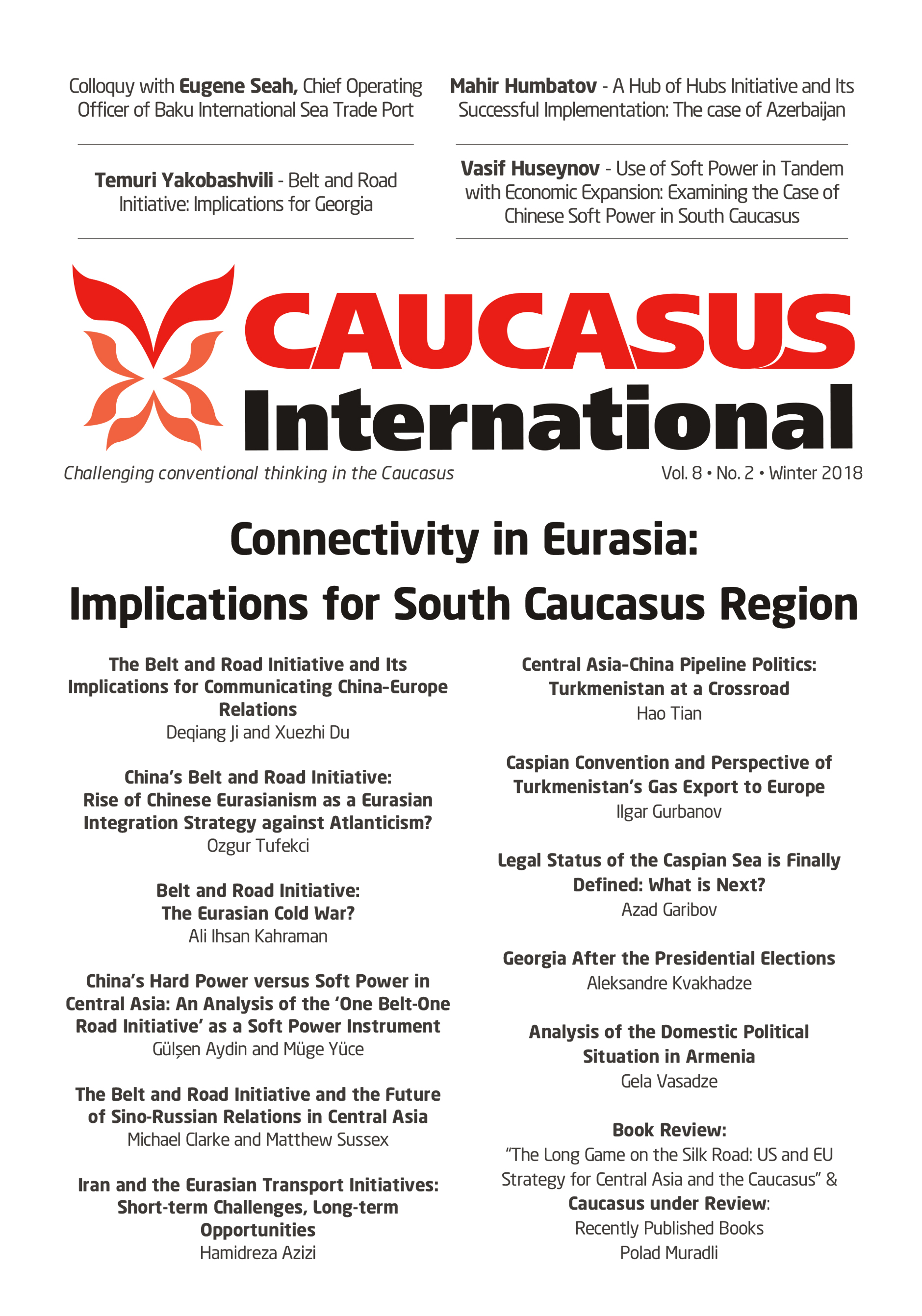China’s Hard Power versus Soft Power in Central Asia: An Analysis of the “One Belt-One Road Initiative” as a Soft Power Instrument
The One Belt One Road (OBOR) initiative is a massive project involving more than 60 countries with an approximate cost of $6 trillion. It is based on the legacy of the Silk Road, which historically connected China to many countries in Asia, Africa, and Europe. This article aims to examine the OBOR initiative from the perspective of soft power debates in International Relations (IR). This is done in five steps. First, the introduction introduces the subject and provides a brief discussion on its importance. The second section deals with the concept of soft power and the role of soft power in Chinese foreign policy. Then, the study introduces the One Belt One Road Project and its importance for Eurasian connectivity. The fourth section discusses how OBOR acts as an instrument of soft power. The conclusion argues that the OBOR initiative complies with the definition Joseph S. Nye provided for soft power as it is totally devoid of coercion and helps to improve the Chinese image in many senses.
Latest news
- 03/17/2020 Call for Submission: “Non-Alignment Movement and Its Perspective in International Affairs”. Deadline: 1 July 2020 2625 views
Popular articles
- 02/24/2020 The Role of Irredentism in Russia’s Foreign Policy 2536 views
- 02/24/2020 Construction of sub-national identity vis-à-vis parent state: Gagauz case in Moldova 2218 views
- 02/24/2020 The Conflict in Ukraine - The Geopolitics of Separatism and Divergent Identities (Commentary) 2072 views
- 02/24/2020 The Role of the Soviet Past in Contemporary Georgia 2044 views





